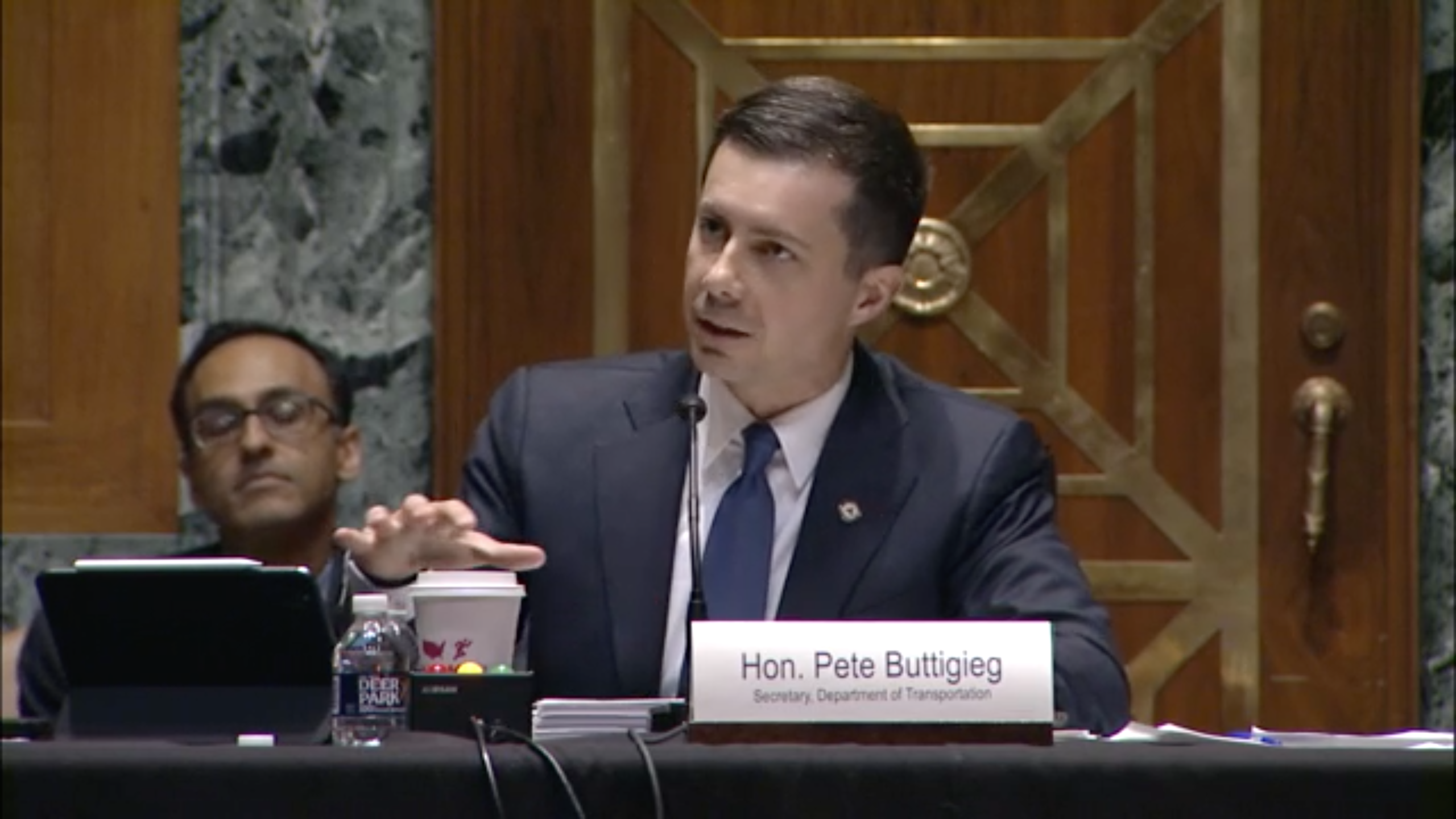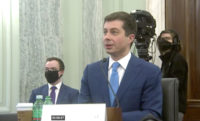The initial congressional hearing on President Joe Biden’s 2024 budget proposal for the US Dept. of Transportation showed evidence of continued strong bipartisan support for infrastructure, though the parties differed on the specifics. [View a video of hearing here.]
Also at the March 23 Senate transportation appropriations subcommittee hearing, panel chair Brian Schatz (D- Hawaii), warned about the severe harm that could hit transportation if House Republicans’ reported interest in rolling back domestic discretionary spending to 2022 levels become a reality.
“Now is not the time to slash critical investments if we want to sustain the progress we’ve made in investing in our infrastructure.” Schatz said, praising Biden’s proposal. “Instead we need to build on that success.”
Committee members quizzed DOT Secretary Pete Buttigieg, the sole witness at the hearing, about recent front-page transportation issues, including the East Palestine, Ohio, train derailment and other rail accidents, as well as airline runway incursions and the March 22 construction work zone accident on the Baltimore Beltway that killed six construction workers.
But infrastructure was a prominent recurring theme during the hearing.
Two key committee Republicans criticized what they termed the administration's proposal to "zero out" in 2024 two prominent DOT infrastructure accounts, the Rebuilding American Infrastructure with Sustainability and Equity, or RAISE, discretionary grants and Federal Highway Administration bridge funding distributed among the states by formula.
Sen. Cindy Hyde-Smith (Miss.), the ranking GOP member of the subcommittee, said, "Each of these programs have been very crucial for rural communities, especially in states like Mississippi.”
Sen. Susan Collins (Maine), the top Republican on the full Appropriations Committee, agreed. She said that the funding from the Infrastructure Investment and Jobs Act (IIJA) “was intended to be supplemental, It was not intended to supplant the regular appropriations.”
Jeff Davis, senior fellow at the ENO Center for Transportation, provided more details on Twitter, saying that the budget request would call for eliminating "extra" bridge formula funding that draws in the General Fund. adding that the proposal would eliminate non-IIJA appropriations for RAISE.
Collins also said the Biden administration “has been very quick to laud the bipartisan infrastructure program, to take credit for its role in shaping it, but now it’s submitted a budget that dilutes its impact.”
Buttigieg acknowledged the popularity and effectiveness of the RAISE program.
“It’s of course challenging in any budget to make sure that the 'top line' conforms with the President's and the public's and the Congress's expectations about fiscal responsibility," he said. "We sought to strike that balance in the right way, ensuring that there are additional funds for projects, including discretionary programs that we know are very sought-after across the country."






Post a comment to this article
Report Abusive Comment